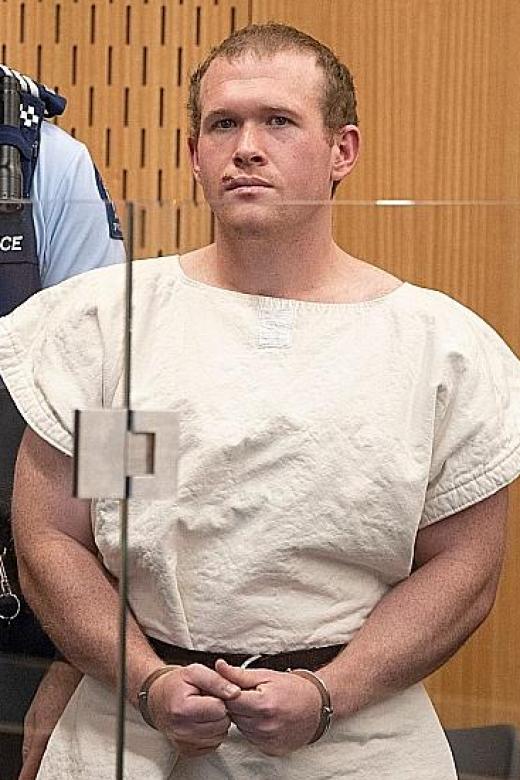NZ judge to gunman: Life in jail without parole not enough for you
CHRISTCHURCH: New Zealand mosque gunman Brenton Tarrant was sentenced to life in prison without parole yesterday for the massacre of 51 Muslim worshippers, with a judge calling his actions "wicked" and "inhuman".
Judge Cameron Mander said in the Wellington High Court yesterday that Tarrant's "warped" ideology and "base hatred" led the Australian white supremacist to murder defenceless men, women and children last year in New Zealand's worst terror attack.
"Your crimes are so wicked, that even if you are detained until you die it will not exhaust the requirements of punishment and denunciation," Judge Mander said as he announced a sentence that is a New Zealand legal first.
The judge solemnly read out the names of the 51 murdered in a livestreamed rampage and recounted in forensic detail how Tarrant, 29, executed the wounded as they pleaded for help on March 15 last year.
INHUMAN
"It was brutal and beyond callous. Your actions were inhuman," the judge said, pointing out that Tarrant deliberately attacked Friday prayers to maximise casualties.
Prime Minister Jacinda Ardern said she was relieved that "that person will never see the light of day".
"His deserves to be a lifetime of complete and utter silence," she said.
Born in the rural Australian town of Grafton, a six-hour drive north of Sydney, Tarrant worked as a gym instructor before arriving in New Zealand.
Only later did it emerge that Tarrant began amassing an arsenal of weapons soon after setting up home in Dunedin with the intention of carrying out the attacks.
An exceptional aspect of Tarrant's personality seems to be his susceptibility to online hate.
Increasingly isolated in the real world, Tarrant dwelt in extremist chat rooms, sharing racist memes and in-jokes with online acquaintances who encouraged his views.
Prosecutor Mark Zarifeh quoted from an interview prison authorities conducted with Tarrant in April, when he described his state of mind at the time of the attacks.
"He said he had a poisoned emotional state and was terribly unhappy," Mr Zarifeh said.
"He felt ostracised by society and wanted to damage society as an act of revenge." - AFP, REUTERS
Get The New Paper on your phone with the free TNP app. Download from the Apple App Store or Google Play Store now




